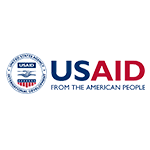Building Behavioral Economics Capacity with the University of Zambia
HIGHLIGHTS
- Behavioral economics (BE) is increasingly being recognized as a critical discipline to the social and behavior change (SBC) field, yet, there are limited opportunities for public health practitioners in the Sub-Saharan African (SSA) region to learn to apply behavioral economics (BE) concepts to public health challenges.
- Under the USAID-funded Breakthrough ACTION project in Zambia, ideas42 led the development of a year-long undergraduate course in Applied Behavioral Economics for Public Health Practitioners at the University of Zambia.
- Meaningful collaborations with universities in the Global South represent exciting opportunities to equalize the playing field and equip practitioners with the skills required to apply critical disciplines like behavioral economics to public health.
The Challenge
Behavioral economics is increasingly being recognized as a critical discipline to the social and behavior change field, yet, opportunities to build these skills have historically been available only to students in high-income countries. For public health practitioners in the Global South, unless they participate in donor-funded projects, which may or may not have meaningful skills-building aspects, they are unlikely to have access to opportunities to build skills in behavioral economics which are in increasingly high demand.
Our Approach
Under the USAID-funded Breakthrough ACTION project in Zambia, our team led the development of a year-long undergraduate course in Applied Behavioral Economics for Public Health Practitioners. The course has been integrated into the new Bachelor’s in Health Promotion module offered by the University of Zambia (UNZA), which was developed with technical support from B-A. Teaching methods include in-person coaching, online seminars, intensive workshops, and project shadowing opportunities.
Results
ideas42 staff provided hands-on teaching and mentorship to 12 UNZA lecturers from diverse disciplinary backgrounds, including health economics, epidemiology, and sociology. The course is now taught as part of the Bachelor in Health Promotion module.
Both students and professors have expressed enthusiasm, with student evaluations recognizing the course for helping them question their assumptions about how to encourage healthy behaviors. UNZA is exploring opportunities to expand behavioral science coursework in additional graduate and undergraduate programs, including its master’s program in Health Economics.
Takeaway
By building interest and capacity in behavioral science among local health professionals and decision-makers in the Global South, we can ensure that behavioral science is incorporated into scalable health policies and solutions. More sustainable methods of capacity building are needed, including direct partnerships with universities. We will continue to build on this approach by seeking partnerships with additional institutions in the Global South to facilitate the application of behavioral science at scale and ensure equal opportunities for students in the Global South to build these skills.
Interested in our work applying behavioral science to global health? Email gh@ideas42.org or tweet at @ideas42 to join the conversation.
Partners









